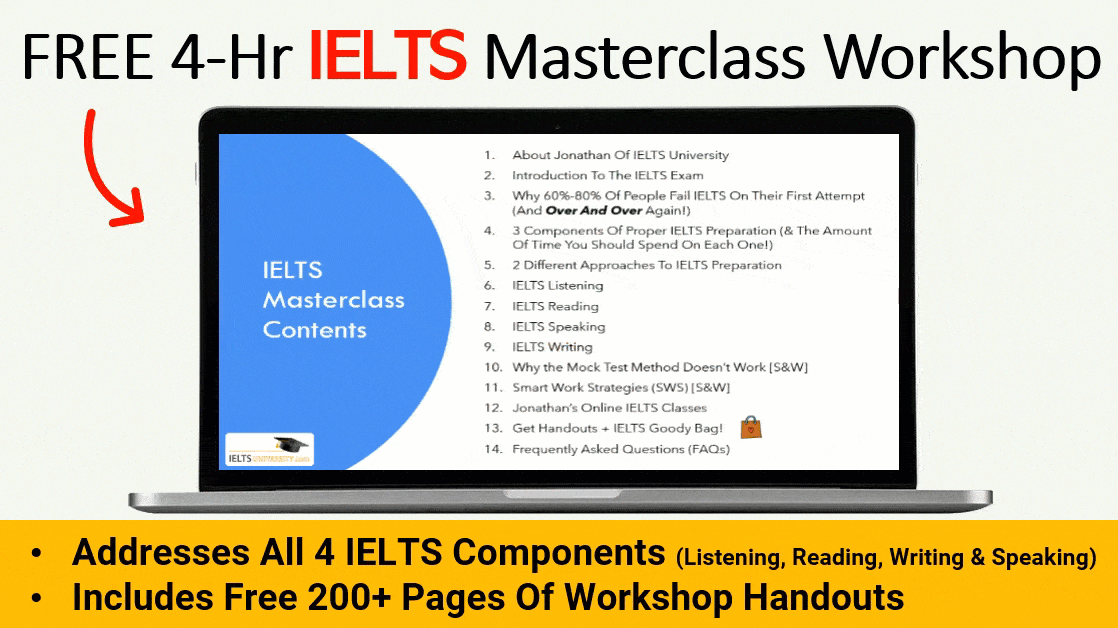The IELTS Speaking test consists of three parts. and lasts for about 11 – 13 minutes and is a two way discussion with the examiner. In part 3, the examiner will take into account the topic in the previous Part 2. This part will involve a discussion between you and the examiner for about 4 to 5 minutes. You will be asked to answer questions related to the part 2 topic but on a broader aspect. You should expect to be asked approximately 6 questions of increasing difficulty. The questions will be more abstract or general.
In part 3 of the test, the examiner will test your linguistic limits and finalise your score. Basically, they will decide whether you should stay at the score you are at, based on your performance in part 1 and part 2, or whether they should improve your score. When answering these questions you should show a greater range of speaking skills, as this will allow the examiner to judge your upper band limit. That is why students from Singapore find this part a little bit more demanding than previous parts. In this article we will delve into the details about the 3rd part of the speaking test.
What Are Abstract Questions?
These questions ask you to focus on general ideas and not personal information. They are about society and the world at large. These questions encourage you to explore ideas and concepts rather than just relating facts.
For example:
How important is tourism in your country?
What are the different types of trips and holidays that people can take these days?
Common Question Types For Part 3 Of The IELTS Speaking Test
As mentioned before the questions in this part are more abstract and general. This is different from the previous 2 parts where you were asked to comment on things from your own personal experiences. In this part you can be asked to comment on global trends and the opinions of other people as well. There is no fixed list of question types, but I will mention some of the more common part three questions that you find in this part of the speaking test.
Questions that ask for your opinion or preferences
In this question you will be asked to opinions and ideas. This can include your opinion and other people’s opinions too. Remember don’t just give your opinion, justify your views as well by explaining further and/or giving an example.
For example:
- Do you generally read a lot of books or do you prefer watching TV? Or What kind of books are considered good reads in your opinion?
- Which are more popular in your country: fast food restaurants or traditional restaurants?
- Do you think it’s best to do new things on your own or with other people? Why?
Questions that ask you to compare and contrast
This kind of question asks you to talk about the differences or similarities between two or more things. To do this you have to use comparative adjectives (to compare two things) or superlative adjectives (to compare more than two things)
For example:
- Do you think that people read nowadays as they did in the past? Or Between books or movies which one, in your opinion, is better? Why is so?
- Do you agree that the older people are, the more patient they are?
- Do you agree that the kinds of homes people prefer change as they get older?
- Have relationships between parents and children changed in recent years? Why do you think that is?
‘Types of’ question
In this type of question you will be asked to mention the names of different details related to a particular topic. Remember that the examiner will not be interested in the actual content of your answer, but they will be listening out to check your ability to describe the items mentioned in your list.
For example:
- Which kinds of jobs have the highest salaries in your country? Why is this?
- What types of local businesses are there in your neighbourhood?
- What are the most important qualities that a good businessperson needs? Why is that?
Questions that ask you to talk about the future
In this type of question the examiner will ask you to talk about what you think will happen in the future or how things will change in the future. Such questions are designed to tests your ability to use future structures.
For example:
- Do you think books in hard copy form will still have a place in society in the future?
- Do you think there will be a greater choice of food available in shops in the future, or will there be less choice?
- Do you think that meetings between international leaders will become more frequent in the future? Or will there be less need for world leaders to meet?
Sample Answers
Opinion Question
Types of Question
Compare and Contrast Question
Future Question

